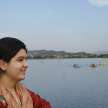The Controversy over Moon Sighting
Complex Issue Moon Sighting

The sighting of the moon is a crucial event in many Islamic traditions, as it marks the beginning and end of important religious observances. However, it is also a highly contentious issue, with disagreements arising over the methodology of moon sighting and the authority of those responsible for determining the start of religious months.
This article will examine the controversy over moon sighting and the complexity of the issue.
The Importance of Moon Sighting in Islam
The sighting of the moon is crucial in determining the start and end of the Islamic lunar months, which in turn determines the timing of important religious observances. For example, the start of the month of Ramadan, the month of fasting, is determined by the sighting of the crescent moon. Similarly, the end of Ramadan and the start of the month of Shawwal, which marks the celebration of Eid al-Fitr, is also determined by the sighting of the moon.
The sighting of the moon is not just a practical matter, but also has spiritual significance in Islamic traditions. Muslims believe that the moon sighting is a sign of God's mercy and blessings, and that it is a way of connecting with the divine. Therefore, moon sighting is an important practice for many Muslims, and the accuracy and reliability of the sighting is of utmost importance.
The Controversy Over Moon Sighting
Despite the importance of moon sighting, there is widespread disagreement among Muslims over the methodology of sighting and the authority of those responsible for determining the start of religious months. The controversy over moon sighting is a complex issue that involves a range of factors, including cultural traditions, scientific knowledge, and religious authority.
One of the main sources of disagreement is the methodology of moon sighting. There are two main approaches to moon sighting: the traditional method, which relies on naked-eye observation, and the scientific method, which uses astronomical calculations to predict the sighting of the moon. The traditional method is based on the idea that the sighting of the moon must be confirmed by a group of reliable witnesses, who must be Muslims and of sound mind. However, this approach can be unreliable and has led to disagreements over the timing of important religious observances.
The scientific method, on the other hand, is based on astronomical calculations and can accurately predict the sighting of the moon. However, this method is controversial among many Muslims, who argue that it goes against the traditional method and ignores the importance of human observation and testimony.
Another source of disagreement is the authority of those responsible for determining the start of religious months. In many Muslim countries, the government or an official religious body is responsible for announcing the start of the lunar month based on moon sighting. However, there are also many local and regional traditions that follow their own moon sighting practices and do not necessarily follow the official announcements.
The controversy over moon sighting has led to a range of practical problems, including disagreements over the start and end of important religious observances, confusion over travel arrangements, and even disputes over the payment of salaries and taxes.
The Complexity of the Issue
The controversy over moon sighting is a complex issue that involves a range of factors, including cultural traditions, scientific knowledge, and religious authority. The issue is further complicated by the fact that it is not just a matter of religious practice, but also has practical implications for many aspects of daily life.
One of the main challenges in resolving the controversy over moon sighting is the need to balance traditional practices with scientific knowledge. While the traditional method of moon sighting has historical and cultural significance, it can also be unreliable and lead to disagreements. On the other hand, the scientific method can accurately predict the sighting of the moon, but it can also be seen as disregarding the importance of human observation and testimony.
Another challenge is the need to address the diversity of moon sighting practices across different regions and communities. While some Muslim countries follow official government announcements, others rely on local traditions or follow the rulings of religious scholars. Therefore, any attempt to standardize moon sighting practices will need to take into account the diversity of approaches and the cultural significance of the tradition.
The controversy over moon sighting is a complex issue that involves a range of factors, including cultural traditions, scientific knowledge, and religious authority. While the sighting of the moon is a crucial event in many Islamic traditions, disagreements over methodology and authority have led to practical problems and confusion. Resolving this controversy will require a nuanced approach that balances traditional practices with scientific knowledge and takes into account the diversity of moon sighting practices across different regions and communities.

Ultimately, the goal should be to ensure the accuracy and reliability of moon sighting while also respecting the cultural and religious significance of the tradition.
About the Creator
Sarah Ahmad
I am a versatile professional with skills in content creation, digital marketing, and teaching. I am experienced in writing articles, creating videos and graphics, and managing social media platforms.
Enjoyed the story? Support the Creator.
Subscribe for free to receive all their stories in your feed. You could also pledge your support or give them a one-off tip, letting them know you appreciate their work.






Comments
There are no comments for this story
Be the first to respond and start the conversation.